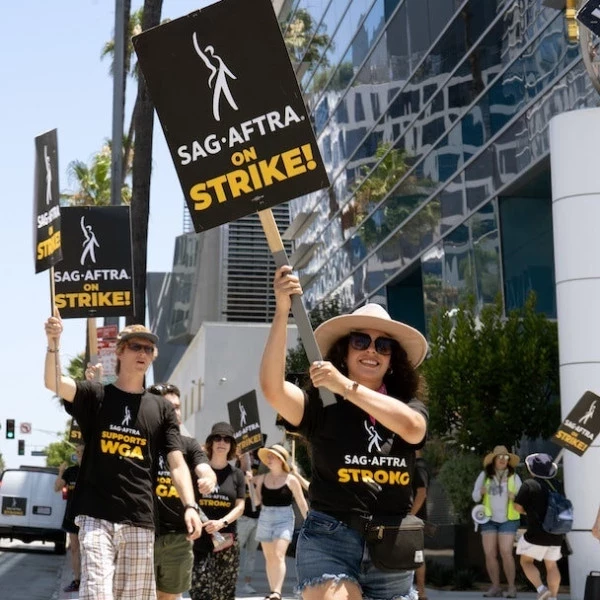HR News: CEO Pay Angers People, Unions Strike Update, More Layoffs from GM and WWE, and Law for Workers in UK
HREN News Roundup for the Week of 9/18
Add bookmark
This is a weekly roundup of the latest in HR News.
As is often the case, this week's Human Resources news is closely linked. When read together, they paint the picture of a brewing battle between leadership and employees. Labor unions are striking, and each one has a slightly different fight on its hands. However, they are all looking for workers to earn more money as the cost of living and healthcare rises exponentially.
In the meantime, people are expressing distrust and disdain for the high salaries earned by CEOs, who, in turn, have great motivation to pay employees little, so they can hang onto more of the pie. People in Europe are facing similar struggles and giving employees leverage - with their time at least.
Anger Over CEO Pay
LinkedIn reported on the automotive labor unions on strike by expressing how some of the simmering anger is about how much money CEOs are getting paid versus workers. This fight is a long time coming. The divide between leaders and workers has been growing for decades now, and it does seem to be reaching a boiling point.
The Economic Policy Institute (EPI) shares that CEOs were paid 399 times as much as the average worker in 2021.
"Corporate boards running America’s largest public firms are giving top executives outsize compensation packages that have grown much faster than the stock market and the pay of typical workers, college graduates, and even the top 0.1%," according to EPI.
READ: Your HR Guide to Unions
Unions Strike Update
A number of labor unions are on strike now. The United Auto Workers (UAW), Writers Guild of America (WGA), the Screen Actors Guild-American Federation of Television and Radio Artists (SAG-AFTRA) are striking now as they continue negotiating contracts. Pay is a factor in all of the strikes, but there are also unique points of contention for each negotiation. There is hope for the WGA, which has made some progress in negotiations despite still being without a contract deal, according to the Hollywood Reporter.
In addition, the Coalition of Kaiser Permanente Unions is threatening to have more than 75,000 workers go on strike if an agreement is not reached, according to CNBC and numerous other outlets.
READ: HR Guide to Layoffs
Layoffs from General Motors and WWE
In the middle of the UAW strike and continuing negotiations, General Motors and Stellantis announced more layoffs in the thousands. They say this is a direct consequence of the ongoing strike, and Ford had announced temporary layoffs last week, according to Forbes.
They were joined in announcing layoffs by World Wrestling Entertainment, which recently finalized a merger with Ultimate Fighting Championship (UFC). Yahoo! reports that WWE cut more than 100 positions following the merger.
Life Gets More Predictable for Workers in the UK
The Predictable Working Act means workers in the United Kingdom can request a more predictable working pattern. This is a solution to the frequent imbalance of power between some employers and workers in atypical work, according to the UK government. The goal is to encourage workers to begin conversations with their employers about their schedules.
"This change in the law is another tinkering to address the new types of working patterns that are associated with the 'gig economy,' to try to give workers a bit more certainty over their hours of work and income," says Christopher Hitchins, London managing partner and employment lawyer at Katten UK, in an email to IQPC Digital. "These developments in the new law are an iterative process, for example starting with the ban on exclusivity clauses for zero hours’ workers a few years’ back. This new law is another 'right to request' – like the right to request flexible working from day one, which is due to come in some time in 2024 – which can be turned down by an employer with appropriate reasoning, not an outright right."
Photo by Andrea Piacquadio for Pexels


























